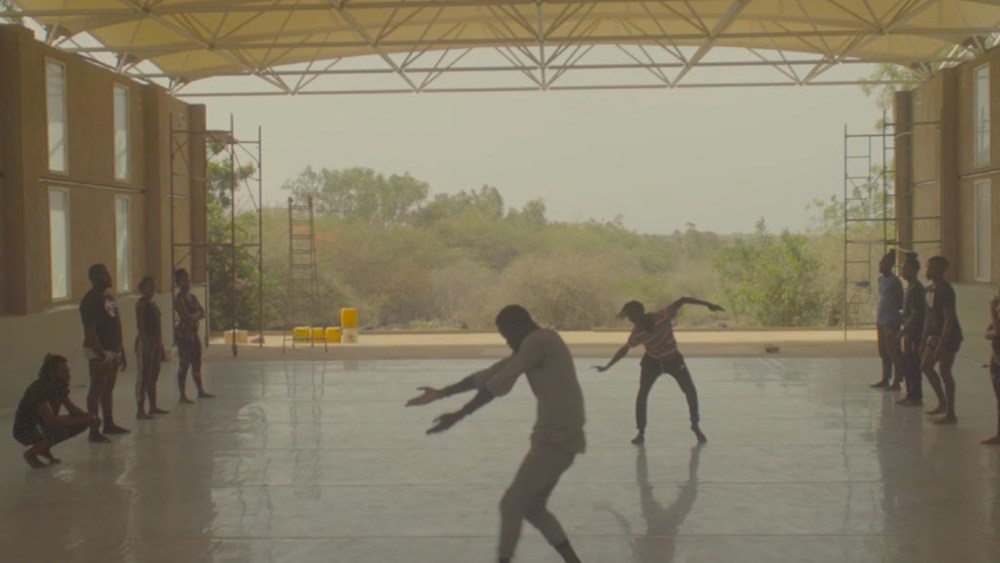Mamadou Dia Readies Documentary ‘Legacy’ on ‘Mother of African Dance’
Award-winning Senegalese filmmaker Mamadou Dia (“Nafi’s Father”) is in post-production on “Legacy,” a documentary that follows students at a legendary West African dance school. The director will be presenting the film during the Venice Production Bridge’s Final Cut workshop for films in post-production from Africa and the Arab world, which takes place Aug. 31 – Sept. 2.
“Legacy” follows a group of students in their third and final year at the École des Sables, described by Dia as “the Ivy League of dance schools in sub-Saharan Africa.” Founded by legendary Senegalese dancer and choreographer Germaine Acogny, the school offers students from across Africa a rigorous introduction into the world of modern dance and prepares them for the uncertain future outside the academy’s doors.
The film is a tribute to Acogny, as well as a response to what Dia describes as a troubling lack of “filmic testimony” about Africa’s “living heroes.” “How many of us filmmakers from [the continent] are taking the time to make a statement about who they are, about the lives they lead, about the times [in which] they live?” he said. “It’s not only about culture and dance; it’s also about environment, it’s also about legacy, it’s also about how we represent ourselves and who speaks for us.”
With “Legacy,” the director said he did not set out to make a “classical portrait” of Acogny, who is widely regarded as “the mother of modern African dance.” “I wanted to see her through the people she is training,” he said, focusing on the students who commit themselves “body and soul” to dance — and to the hope of winning the blessing of “Maman Germaine.”
Following them across their final year at the school, Dia charts their hopes and fears, while also exploring the ways in which they use dance not only as a series of rhythmic movements, but as a way to make a statement or ask provocative questions through their bodies. “How do I dance to share my political opinions? How do I dance to condemn something? How do I dance to celebrate something?” Dia said.
Along with its reputation as a dance academy, the École des Sables is renowned for its picturesque setting on the Atlantic coast, in the little fishing village of Toubab Dialaw. (“You hear the birds. You hear the ocean. You hear the waves,” said Dia, waxing poetic about the school’s “paradisiacal” backdrop.) It is there, however, that Senegal has begun construction on what’s being billed as West Africa’s largest port, putting the very existence of the dance school in jeopardy.
“This school is now changing,” said Dia. “[The students] are inside dancing but are very aware of how the ecosystem is going to change. How are they going to adapt to that? How do we preserve our people?”
“Legacy” marks a long-awaited return to the Lido for Dia, who debuted his short film “Samedi Cinema” in the Venice festival’s Horizons section in 2016. (Acogny, too, is no stranger to the Italian city: the groundbreaking dancer and choreographer was honored with the Golden Lion for lifetime achievement at the Venice Biennale in 2021.)
Dia swiftly emerged as a talent to watch with his debut feature “Baamum Nafi” (Nafi’s Father), which won the award for best first feature at the Locarno Film Festival in 2019, as well as the Golden Leopard in the prestigious Swiss fest’s Filmmakers of the Present section. His sophomore effort, “Demba,” premiered in the Berlinale’s competitive Encounters strand last year.
“Legacy” is produced by Maba Ba for Joyedidi, the Dakar- and N.Y.-based production outfit co-founded by Dia, in co-production with Eugénie Michel Villette at France’s Les Films du Bilboquet. It received support from France’s Ministry of Culture through its support scheme for films about dance.
While the film is in part a tribute to the remarkable life led by Acogny, who has stepped away from day-to-day teaching, Dia said she remains active and ever-present at the École des Sables. “Germaine has taught dance all her life. Her legacy goes through [the teachers],” said Dia. “It’s her school, her house, her techniques.” Her presence at the academy is more than spiritual: her house is located on school grounds.
“This is someone who never took a break. She just keeps going,” said Dia. “Today she’s 81 years old and she’s still there at the school. She dances; she tours the world. I think it’s also wonderful to see someone standing there like that with so much pride,” he continued, “creating this thing not only for Africa, but for the whole world.”

